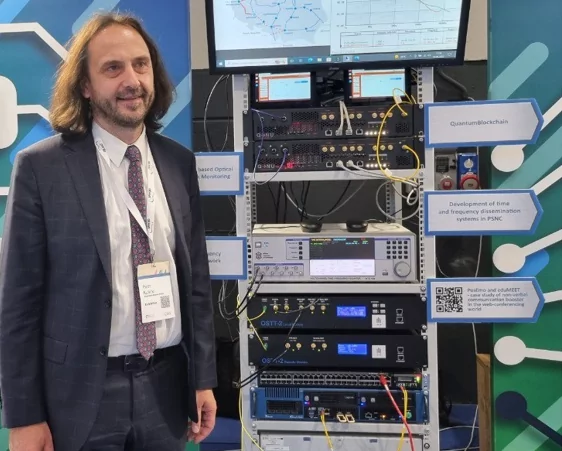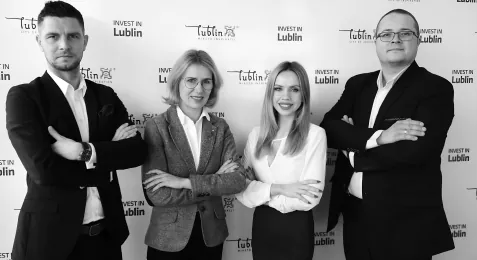Lublin Info Centre
Quantum Blockchains secures future of data
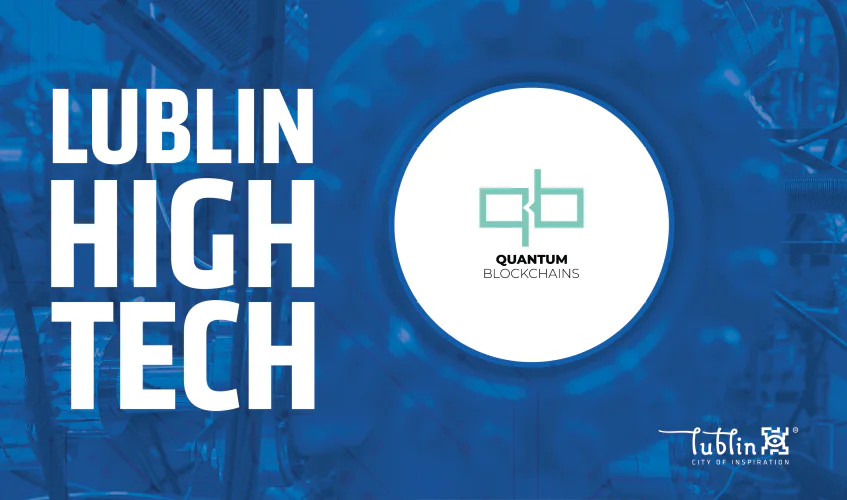
Professor Kulicki, tell us briefly how the Quantum Blockchains came into being.
The company was established as a result of our academic research. At some point, we decided that we could commercialize our studies, even if the technologies we develop are so advanced that not many people know how to apply them. We started the research within the Department of the Foundations of Computer Science Foundations of the Catholic University of Lublin with the support of our external partners. In the beginning, there were only three of us: Xin Sun PhD, who was at that time on a postdoctoral internship at the Catholic University of Lublin, Mirek Sopek PhD, president of Makolab, an IT company from Lodz, and myself. We all shared a passion for quantum computers, as well as for quantum mechanics and the application of tools based on it to secure information systems, particularly in the area of blockchain. Later on, our team expanded to include a cyber-security financier and a person in charge of business affairs. We joined forces and set up the company known today as Quantum Blockchains. Initially, as a startup, we went through the acceleration process at the Eastern Business Accelerator in Puławy. Later on, we were able to obtain more startup funding from PARP, which in turn allowed us to expand our business and hire additional 10 employees.
Could you explain what blockchain technology is so that an average reader can understand how it works?
Blockchain is a digitally distributed database that cannot be deleted, altered or destroyed. Blockchains are best known for their crucial role in cryptocurrency systems, such as Bitcoin, for maintaining a secure and decentralized record of transactions outside a banking system. Thanks to this technology we can confirm transactions without a need for a central clearing authority. In Bitcoin’s case, not a single person has control, but many equal users generate trust, and thanks to a special procedure the transactions are approved. Blockchain guarantees the security of a record of data because it is well protected from potential hacking from the outside.
What is the connection between blockchain technology and quantum computers then?
Classical blockchain and classical cryptography in banking use asymmetric encryption algorithms based on certain calculations. Classical computers cannot break such security codes. But it is only a matter of time when fully-functional quantum computers will enter the market, and people will be able to unlock any encryption program used in the blockchain system and steal or change data stored there. We need to figure out how to prevent such a scenario. As for now, two potential solutions are being considered. The first is to improve current cryptography methods with more complex computational challenges, known as post-quantum cryptography. However, this approach is only a temporary solution as new algorithms and quantum computers may emerge that can bypass these protections. There is another way to solve the problem though – it involves the creation of a security system that is based on quantum technology. It is theoretically proven that encryption algorithms used in such safety systems are immune to all possible attacks, providing the safety of data. That is exactly what our company aims to do – we are looking for solutions that can be implemented in blockchain systems and ensure complete data security.
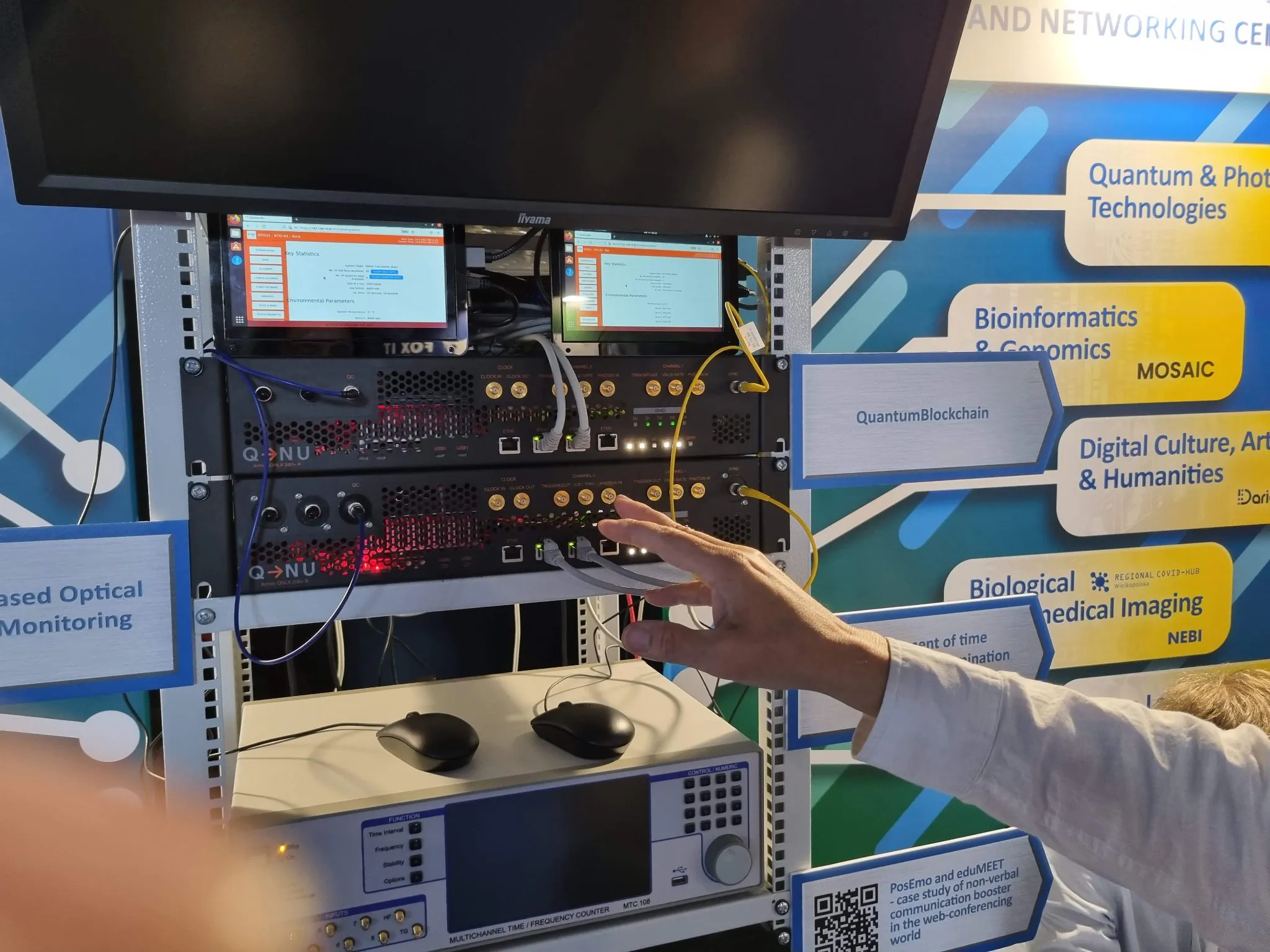
What is the role of the solution proposed by your team in this regard?
Devices that allow for the use of quantum cryptography mechanisms are already available on the market. However, the most advanced ones, called quantum key distributions (QKD), are currently very expensive, making it difficult for them to be widely adopted. Our solution provides an infrastructure that can eventually make use of these systems, but in the meantime, it can utilize cheaper alternatives like quantum random number generators and post-quantum cryptography that offer a slightly lower level of security but are still adequate for current needs. At the same time, we are working on solutions to technologically and economically optimize the use of quantum cryptography in blockchain networks.
What does the market in which you operate look like? Are your customers aware of the threats you have mentioned?
People’s awareness in this context is questionable. Especially among those who decide on the policies of financial institutions. That is why our activity involves also organisation of meetings aimed at raising awareness about potential risks, especially for those who deal with security, mainly financial institutions. We do so to convince them that these threats are real and that it is a matter of years rather than decades until quantum computers will be available. We can see that they are starting to understand the seriousness of the situation, but so far not well enough to start implementing concrete solutions regarding that issue.
How many people are there in your team? Are most of them Lublin residents?
Our team consists of 15 people, including shareholders. They come from all over Poland. From Lublin alone, there are four employees, mostly graduates and students of Lublin universities that specialize in programming.
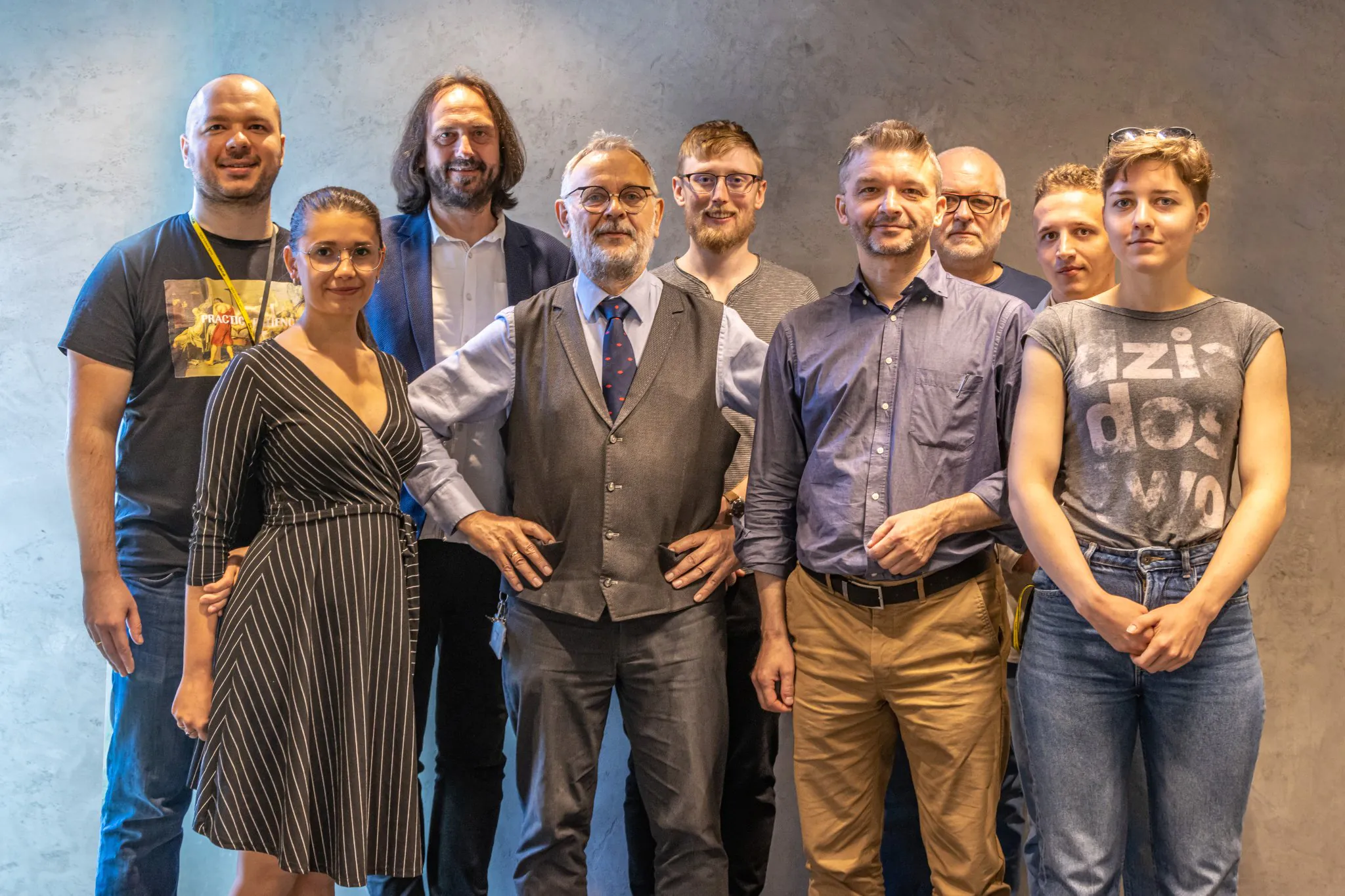
Is it difficult to find specialists in this field?
Finding specialists in this field can be challenging due to the limited pool of professionals in the area, especially in the field of blockchain technology. This is due to the novelty of the field and the lack of educational opportunities to become a blockchain programmer. In Poland, only a small number of companies, less than a dozen, are working in this domain.
What research centres in Poland are dealing with this topic?
There are only few Polish scientific works related to the subject of quantum information, mostly in Torun and Gdansk, there is none in Lublin though. An interesting fact: one of the leading developers of quantum cryptography is Artur Ekert, a Pole, a graduate of the Jagiellonian University, who works both in Singapore and in the UK. He is one of the candidates for the Nobel Prize in Physics and closely cooperates with research centres in Poland. Our company has also established contact with him.
What is the main source of your revenue? What efforts have you made to attract investors, and what stage of commercialization are you at?
Apart from the first grant from the Polish Agency for Enterprise Development (PARP), our income is mainly related to investments we made, such as the money we received from the Cracow-based LT Capital fund. What is more, we passed the first stage of the application to the European Innovation Council, the EU’s flagship project related to financing cutting-edge technologies. We are also working intensively on further grant projects. Besides that, we have signed an agreement with an Indian distributor of quantum keys – a device which we need in our solution. When we established contacts with the manufacturers, it turned out that we also can be distributors of such products in our part of the world. We are close to making the first transaction.
We are in the early stages of our journey, so any opportunity to reach out to the public, especially to entities who deal with the issue of cyber-security, is crucial for us. We are actively involved in the Q Cluster – the Quantum Technologies Cluster, aimed at promoting solutions based on quantum technologies. As awareness of how high technologies are becoming not so much a need, but a necessity in the modern world increases so does the demand for products and services from companies like ours.
